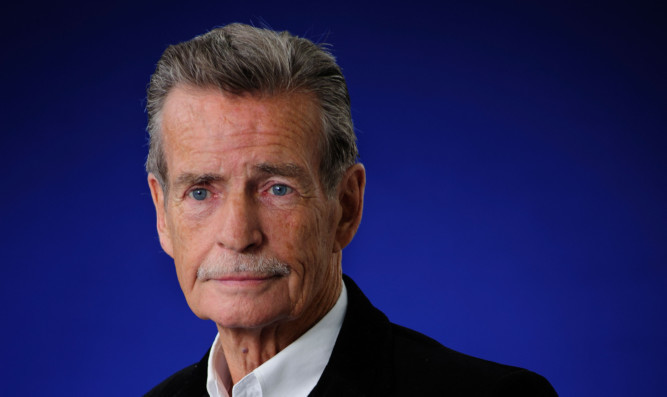Celebrated Scottish writer William McIlvanney has died aged 79 after a short illness.
The author of the Laidlaw trilogy and numerous other Glasgow-based works such as Docherty, The Big Man and The Kiln died peacefully at his home in the city on Saturday.
He is survived by his partner Siobhan, his daughter Siobhan, son Liam and his brother, Hugh, the respected journalist.
Mr McIlvanney, originally from Kilmarnock, was an English teacher before changing career in 1975 to write full time.
He gained immediate recognition with the publication of his first novel, Remedy Is None, and through other works he earned the title of Godfather of Tartan Noir.
Shedding a tear at news of Willie McIlvanney's death. His writing meant so much to me when I was growing up. RIP pic.twitter.com/clrOdxPz6a
— Nicola Sturgeon (@NicolaSturgeon) December 5, 2015
He was also an influential poet, journalist and broadcaster, and contributed to political and sporting life in Scotland through a series of columns and TV programmes.
He won a number of awards, including the Whitbread Prize, the Crime Writers’ Association’s Silver Dagger, the Saltire Award and the Glasgow Herald People’s Prize.
The author influenced a generation of writers both in his native country and beyond, with the debt to US writers being acknowledged last year with the republication of his novels in the US.
First Minister Nicola Sturgeon was a fan of his work and paid tribute to Mr McIllvanney on Twitter.
She wrote: “Shedding a tear at news of Willie McIlvanney’s death. His writing meant so much to me when I was growing up. RIP.”
Dreadful news about William McIlvanney. A truly inspired and inspiring author and an absolute gent.
— Ian Rankin (@Beathhigh) December 5, 2015
Fellow Scots author Ian Rankin posted: “Dreadful news about William McIlvanney. A truly inspired and inspiring author and an absolute gent.”
Speaking earlier this year before the screening of a documentary on his life, Mr McIllvanney said he wanted to write “three or four new things” before theend of his career.
He said: “I get shifty when I talk about it but there are three or four things I’d like to write before I ‘cash in’, but whether I will or not I don’t know.
“I write from compulsion, I have to generate a compulsion, I have probably four ideas that matter to me very much and I hope to realise them, but if you’re a betting man don’t put a bet on it, just wait and see what happens.
“There’s things I’ve started – I’m a great starter, not so good at finishing – I’ve started several things and would like to write maybe three of four things that matter to me.”
The film William McIlvanney: Living With Words was screened at the Glasgow Film Festival in February and broadcast on BBC Scotland.
Mr McIllvanney taught English from 1960 until 1975 at Irvine Royal Academy and then Greenwood Academy, Dreghorn, where he was also assistant head teacher.
He maintained links to education through his writing career and held a series of creative writing posts at Grenoble, Vancouver, Strathclyde and Aberdeen universities.
